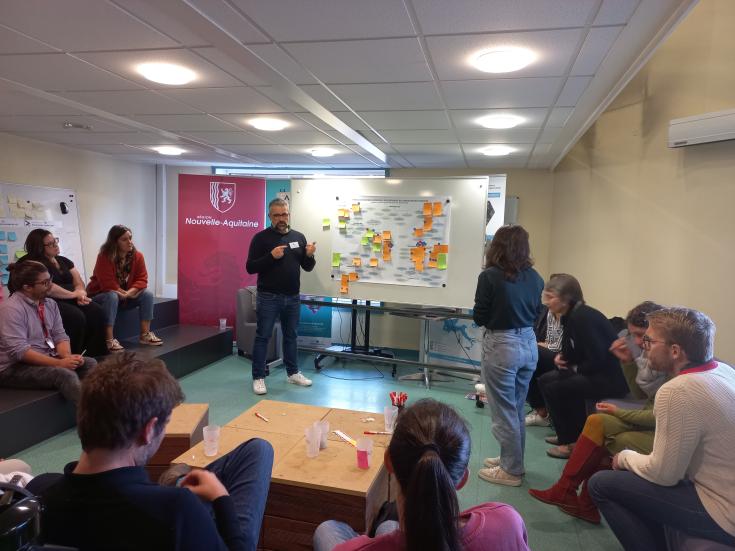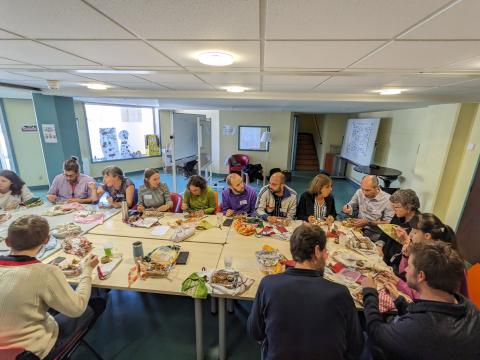France’s CASPER Meeting Drives Policy for Citizen Engagement

France’s CASPER Stakeholder Meeting Explores Policy Improvements for Citizen Participation
Limoges, France – On October 29, 2024, the third local stakeholder group meeting for the CASPER Project took place at the Region headquarters in Limoges, bringing together around twenty key actors from the social and solidarity economy (SSE). This collaborative session
focused on identifying policy improvements to promote citizen participation in rural areas.
Key Themes and Discussions
Participants actively contributed ideas that will help shape Nouvelle-Aquitaine’s regional strategy on the social and solidarity economy (RSSSE). The meeting served as an opportunity to refine ongoing public policy efforts and align them with the evolving needs of rural communities.
Some of the notable proposals that emerged during the discussions included:
- Impact Studies: Funding impact assessments based on different project typologies.
- Resource Sharing: Providing support for mutualizing staff positions among associations to enhance operational efficiency.
- Training for Local Leaders: Integrating the training of elected officials into territorial objective contracts to better equip them for policy implementation.
These ideas will continue to be explored in the coming months as Nouvelle-Aquitaine moves forward with its regional policy revisions.

Future CASPER-Related Events in 2025
Looking ahead, two major milestones are already in sight for 2025:
- In March, the revised regional policy instrument will be voted on by the Regional Council.
- In October, the Global Social Economy Forum will take place in the Nouvelle-Aquitaine region, and CASPER may be presented (yet to be confirmed).
Next Steps and Continued Engagement
The CASPER team in France is currently focused on implementing the recommendations from the stakeholder meetings into the regional policy instrument. Although there are no immediate updates, ongoing efforts aim to ensure that these initiatives translate into tangible policy improvements for rural citizen participation.
In the meantime, we’ll soon be sharing the video documentation of the CASPER partners’ workshop in France.
Conclusion
The third local stakeholder group meeting in Limoges was a crucial step in fostering participatory governance and strengthening the social and solidarity economy in rural Nouvelle-Aquitaine. The CASPER Project continues to provide a collaborative platform for stakeholders to drive meaningful policy advancements that support citizen engagement and regional resilience.
For further updates, stay tuned as we approach the next key policy decisions in 2025.
